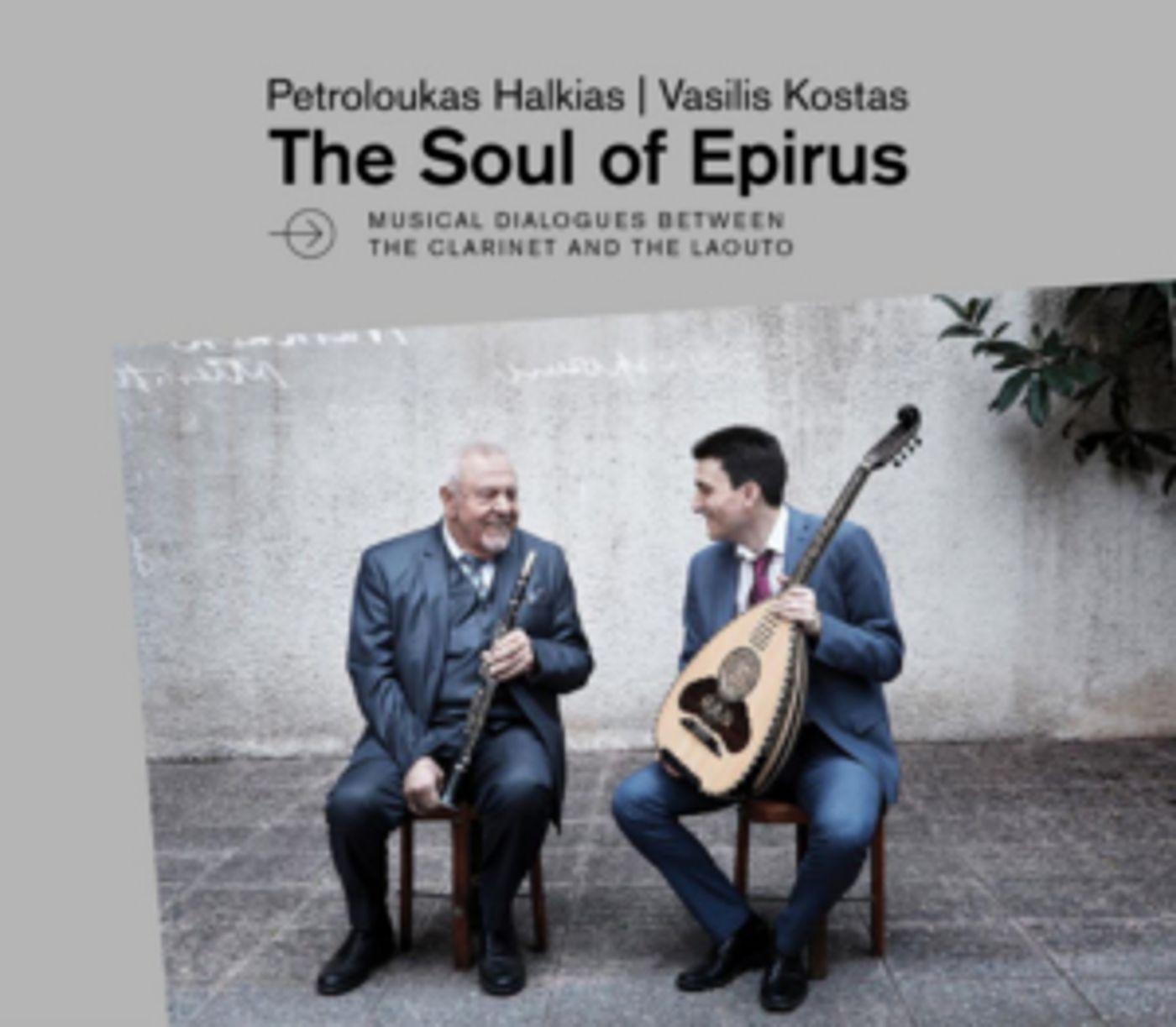Two Visionary Greek Musicians Debut THE SOUL OF EPIRUS on Oct. 4!

The story behind The Soul of Epirus begins years ago, in a little village in the heart of northwestern Greece. It's the story of a young Greek boy named Vasilis who would grow to become an acclaimed musician, performing with some of the world's best. But before that, there was the village, and a family who lived immersed in the soulful mystique of Greek folk songs. During seasonal festivities, the entire village would gather in the main square and Vasilis would dance to the sound of the clarinet. He didn't know it then, but eventually he would become a master of the stringed instrument known as laouto - the Greek version of the lute - and create an innovative new place for it in contemporary music.
On October 4, the release of The Soul of Epirus (Artway Technotropon) marks the culmination of a lifelong exploration of the beauty inherent in the music of Epirus - its slow tempos, reflecting the isolated nature of this mountainous region close to Albania, and its haunting pentatonic scales, based on five notes instead of the more common seven-note scale. A collaboration between Berklee College of Music graduate Vasilis Kostas - a member of Danilo Perez's Global Messengers -- on laouto and veteran clarinet master Petroloukas Halkias, the album delivers a rare opportunity to go beyond the usual clichés associated with Greek pop, illuminating the gorgeous melodies and superb musicianship to be found in Epirus' folk traditions of decades past, its ability to evoke both the inescapable sadness of the human condition and its life-affirming joy.
"The dialogue between Petroloukas' clarinet and my laouto opens up a new window into traditional music," reflects Kostas in a lilting Greek cadence that resonates with the accent of his hometown. "As a kid, dancing in those country festivities allowed me to experience that specific groove not only through my fingers and mind - by playing an instrument - but through my entire body."
When Kostas turned 15, his grandfather introduced him to his friend Andreas Fakos, a clarinet player who had experienced fame in Australia and retired in the village of Klimatia, in Epirus. "I spent the next three years studying with him," he recalls. "The lessons would last four to five hours. He would challenge me to learn the harmonies of old Epirus tunes and play lines designed for violin and clarinet on the guitar. Andreas would play his clarinet in rehearsals and start crying, overwhelmed by the depth and emotional power to be found in our music. I later understood what a gift it was to grow up with such a teacher."
By the time he was 18, Kostas dreamed of establishing himself as a jazz guitarist. He auditioned for a spot at Berklee College of Music and was granted a scholarship. Once in Boston, he was chosen as part of a group of musicians that would travel to Spain representing traditional Greek music. Before leaving, he realized that he wanted an authentic 8-stringed laouto to be his instrument of choice as a tribute to the music of his childhood. He dropped the guitar and practiced a difficult folk piece in the trademark Petroloukas Halkias style - "Skaros," which ended up The Soul of Epirus CD - before flying to Madrid.
"As it turns out, two legends of flamenco were present at the show: Pepe Habichuela and José Mercé," Kostas says with a nervous laugh. "Mercé came to see me after the show and told me: 'Young man, the laouto is the future for you; it will lead you down unexpected paths.' It was the green light that I was looking for. I returned to Berklee as a full time laouto student, learning to play Coltrane's 'Giant Steps,' learning to sight read and improvise."
Watch a video here:
Videos

